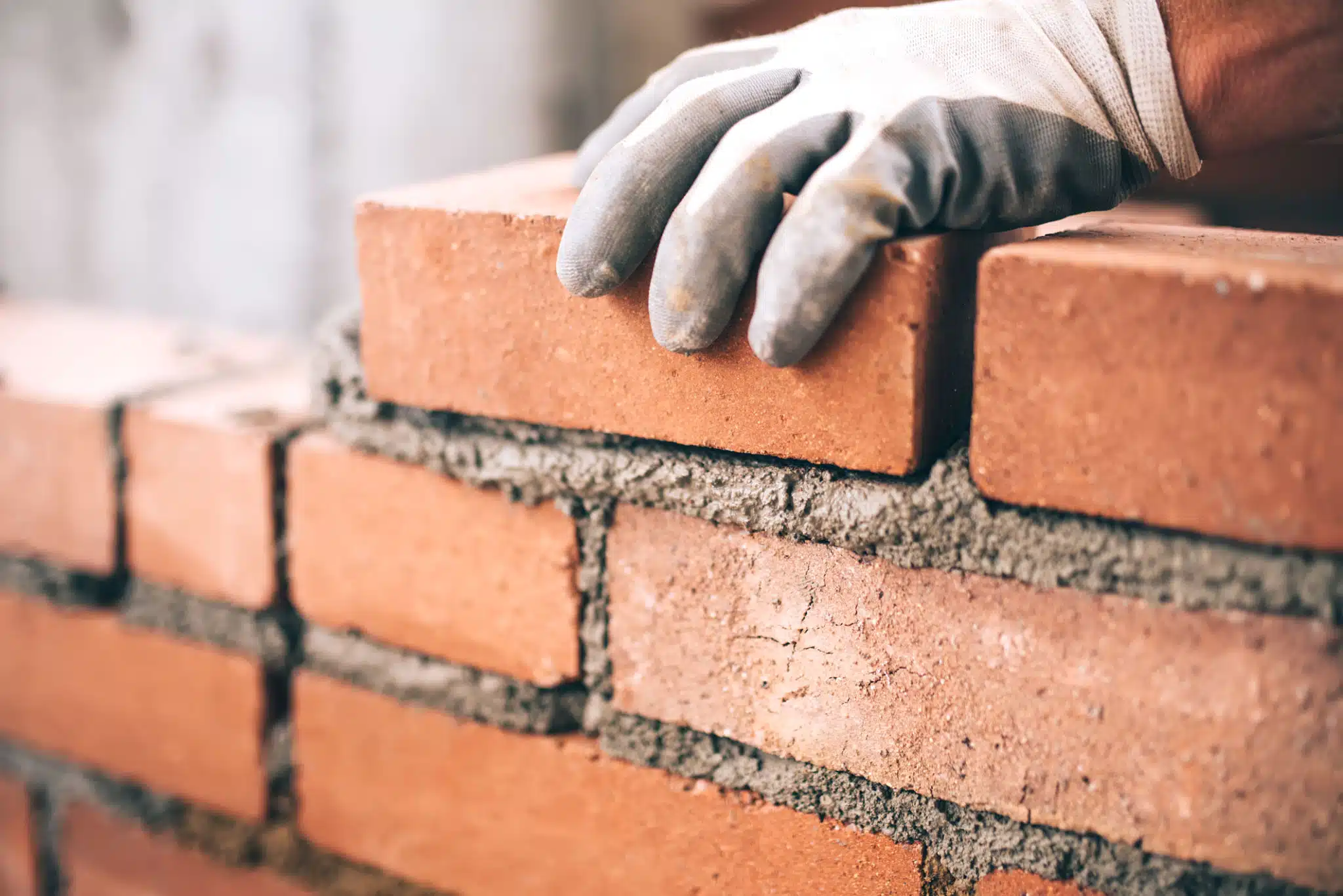Brantford, Ontario, a city steeped in history and architectural beauty, owes much of its character to the skilled masons who have shaped its landscape over the centuries. From the early days of Joseph Brant to the modern preservation efforts, masonry has played a pivotal role in defining Brantford’s identity. In this comprehensive exploration, we’ll journey through time to uncover the fascinating story of masonry in Brantford and its enduring impact on the community.
1. Introduction to Masonry in Brantford
Masonry, the art and craft of building structures from individual units of stone, brick, or concrete, has been an integral part of human civilization for thousands of years. In Brantford, this ancient craft has left an indelible mark on the city’s architecture and culture.
Founded in 1784 by Captain Joseph Brant, Brantford has a rich history that intertwines with the development of masonry in the region. The city’s growth from a small settlement to a thriving industrial center is reflected in its diverse array of masonry structures, each telling a story of the era in which it was built.
2. Early Masonry in Brantford (Late 18th – Early 19th Century)
2.1 Joseph Brant and the first recorded masons
Joseph Brant, also known by his Mohawk name Thayendanegea, was not only the founder of Brantford but also one of the first recorded masons in the area. His influence extended beyond leadership and diplomacy to the very foundations of the city’s built environment.
Brant’s involvement in masonry set the stage for the craft’s development in the region. As a Freemason himself, he likely encouraged the spread of masonic principles and practices, which often went hand-in-hand with the physical craft of masonry.
2.2 Influence of Indigenous craftsmanship
The early masonry in Brantford was not solely a European import. Indigenous craftsmanship, particularly that of the Six Nations, played a significant role in shaping the early built environment. Traditional techniques for working with stone and creating sturdy structures influenced the development of masonry in the region.
2.3 Early stone structures and their significance
Some of the earliest masonry structures in Brantford were simple yet sturdy buildings made from locally sourced materials. These early structures, while often modest, laid the groundwork for the more elaborate masonry that would follow. Churches, government buildings, and private residences were among the first to showcase the potential of masonry construction in the area.
3. The Rise of Freemasonry in Brantford (19th Century)
3.1 Establishment of Brant Lodge No. 45
The establishment of Brant Lodge No. 45 in 1820 marked a significant milestone in Brantford’s masonic history. As one of the oldest Masonic lodges in Ontario, it played a crucial role in fostering the growth of both Freemasonry and the masonry craft in the city.
3.2 Notable Freemasons and their contributions to the city
Many prominent Brantford citizens were members of the Masonic lodge, including businessmen, politicians, and craftsmen. These individuals often used their influence and resources to support the development of the city, including the construction of significant masonry buildings.
3.3 The Masonic Temple Building and its history
The Masonic Temple Building, constructed in 1911, stands as a testament to the influence of Freemasonry on Brantford’s architectural landscape. This impressive structure, with its intricate masonry work, served as a hub for the Masonic community until 1945 and remains an important part of Brantford’s architectural heritage.
4. Masonry in Brantford’s Architecture (19th – 20th Century)
4.1 Prominent masonry buildings and landmarks
Brantford’s cityscape is dotted with remarkable masonry structures that showcase the evolution of the craft. Some notable examples include:
- The Brant County Courthouse (1852)
- Victoria Park Square (1861)
- The Carnegie Library (1904)
- The Bell Telephone Memorial (1917)
Each of these landmarks demonstrates the versatility and durability of masonry construction, as well as the skill of Brantford’s masons throughout history.
4.2 Evolution of masonry techniques and styles
As Brantford grew and prospered, masonry techniques and styles evolved to meet changing tastes and technological advancements. From the simple stone structures of the early 19th century to the ornate Victorian-era buildings and later Art Deco influences, Brantford’s masonry reflects the broader trends in North American architecture.
4.3 The role of stone masons in shaping Brantford’s cityscape
Stone masons played a crucial role in bringing architectural visions to life. Their skill and craftsmanship can be seen in the intricate details of Brantford’s historic buildings, from decorative cornices to precisely laid brickwork. These artisans were instrumental in creating the unique character that defines Brantford’s built heritage.
5. Modern Masonry in Brantford (Late 20th Century – Present)
5.1 Preservation and restoration of historic masonry structures
In recent decades, there has been a growing appreciation for Brantford’s masonry heritage. Preservation and restoration efforts have become a priority, with organizations and skilled professionals working to maintain the city’s historic structures. Companies like Fix My Brick play a vital role in these efforts, employing both traditional techniques and modern technologies to ensure the longevity of Brantford’s masonry buildings.
5.2 Contemporary masonry projects and innovations
While preservation is important, masonry in Brantford continues to evolve. Contemporary projects incorporate new materials and techniques while often paying homage to the city’s rich masonry tradition. Sustainable practices and energy-efficient designs are being integrated into modern masonry construction, demonstrating the adaptability of this ancient craft.
5.3 The importance of masonry in maintaining Brantford’s heritage
Masonry is more than just a construction technique in Brantford; it’s a link to the city’s past and a foundation for its future. The preservation and continued use of masonry in both old and new buildings help maintain Brantford’s unique character and sense of place.
6. The Future of Masonry in Brantford
6.1 Challenges and opportunities for the craft
As Brantford continues to grow and change, masonry faces both challenges and opportunities. The need for skilled masons to maintain historic structures is increasing, while new construction projects offer chances to innovate and adapt the craft for modern needs.
6.2 Training and apprenticeship programs
To ensure the future of masonry in Brantford, training and apprenticeship programs are crucial. Local institutions and organizations are working to pass on traditional skills while also teaching new techniques and technologies relevant to modern masonry practice.
6.3 Sustainable masonry practices
The future of masonry in Brantford is increasingly focused on sustainability. From the use of recycled materials to energy-efficient design principles, masons are finding ways to make this ancient craft environmentally friendly and relevant for the 21st century.
7. Conclusion: The Enduring Legacy of Masonry in Brantford
From the early days of Joseph Brant to the present, masonry has been an integral part of Brantford’s story. The craft has not only shaped the physical landscape of the city but has also contributed to its cultural identity and sense of community. As we look to the future, it’s clear that masonry will continue to play a vital role in preserving Brantford’s heritage while also contributing to its ongoing development.
The rich history of masonry in Brantford is a testament to the skill, creativity, and dedication of generations of craftsmen. As we walk the streets of this historic city, we are surrounded by their legacy – in the sturdy walls of century-old buildings, the intricate details of restored facades, and the innovative designs of new structures.
For those interested in learning more about Brantford’s masonry heritage or seeking expert assistance with masonry restoration and repair, companies like Fix My Brick stand ready to share their knowledge and expertise. Together, we can ensure that the art and craft of masonry continues to thrive in Brantford for generations to come.
\n\n\nWhat role has masonry played in shaping Brantford’s identity?
Masonry has been integral to Brantford’s identity, influencing its architecture and culture since the city’s founding in 1784 by Captain Joseph Brant. The skilled masons and the structures they built have left a lasting legacy that reflects the community’s history.
Who was Joseph Brant and what was his significance to masonry in Brantford?
Joseph Brant, the founder of Brantford, was one of the first recorded masons in the area. His involvement in masonry helped establish the craft in the region and his Freemason background influenced the spread of masonic principles and practices.
What is the significance of Indigenous craftsmanship in Brantford’s early masonry?
Indigenous craftsmanship, particularly from the Six Nations, played a crucial role in early masonry in Brantford. Their traditional techniques and materials informed the construction of early buildings, blending European and Indigenous practices.
What were some notable masonry structures built in Brantford during the 19th and 20th centuries?
Notable masonry structures in Brantford include the Brant County Courthouse (1852), Victoria Park Square (1861), the Carnegie Library (1904), and the Bell Telephone Memorial (1917), showcasing the evolution of masonry in architecture.
How has modern masonry evolved in Brantford?
Modern masonry in Brantford has evolved with new materials and techniques, focusing on sustainability and energy efficiency. There is also a strong emphasis on preserving and restoring historic masonry structures to maintain the city’s heritage.
What are the current challenges and opportunities for masonry in Brantford?
Current challenges for masonry in Brantford include the need for skilled masons to maintain historic structures, while opportunities arise from new construction projects that allow for innovation and adaptation of traditional masonry practices.
What is the role of training and apprenticeship programs in the future of masonry in Brantford?
Training and apprenticeship programs are essential for ensuring the future of masonry in Brantford. These programs help preserve traditional skills while teaching modern techniques relevant to current masonry practices.
Why is masonry considered an important aspect of Brantford’s heritage?
Masonry is vital to Brantford’s heritage as it connects the city’s past with its present and future. The preservation and continued use of masonry structures help maintain the city’s unique character and historical identity.
What can individuals do to learn more about Brantford’s masonry heritage?
Individuals interested in Brantford’s masonry heritage can seek assistance from expert companies like Fix My Brick, which offer knowledge and services related to masonry restoration and preservation.



